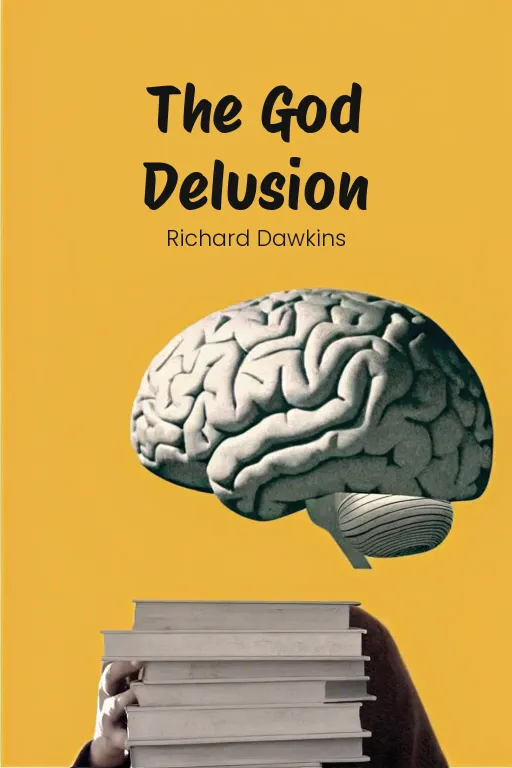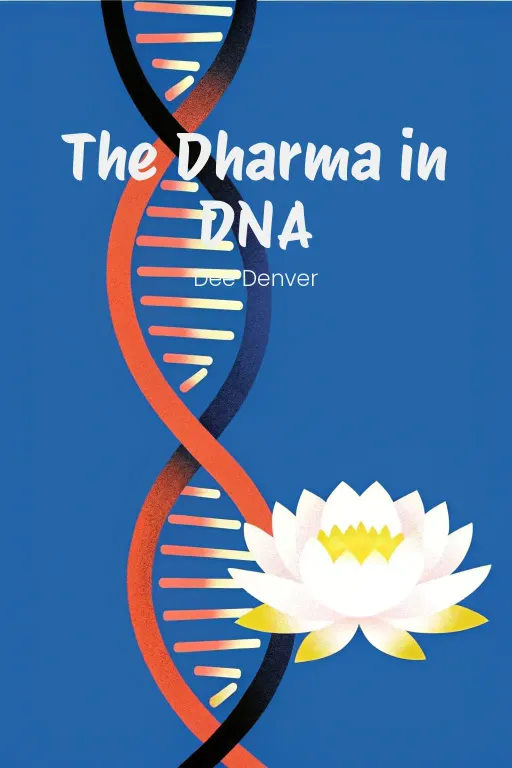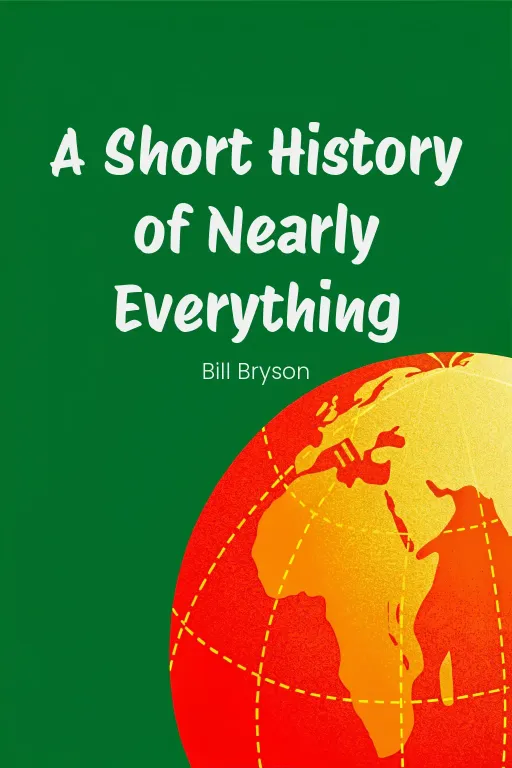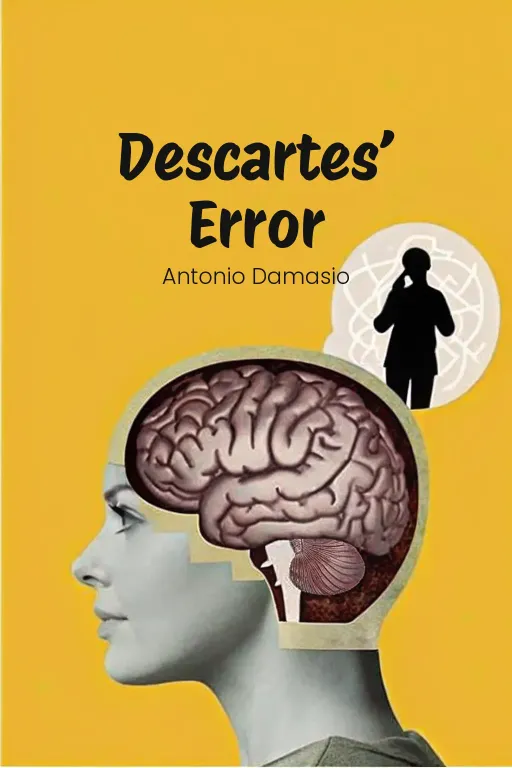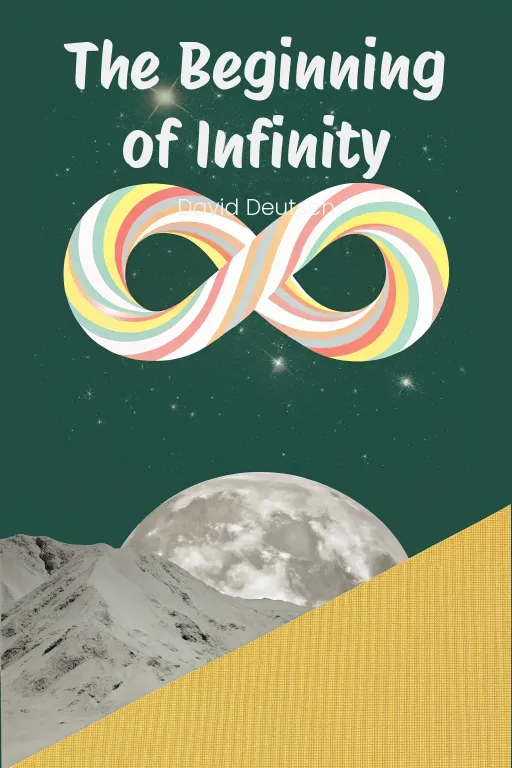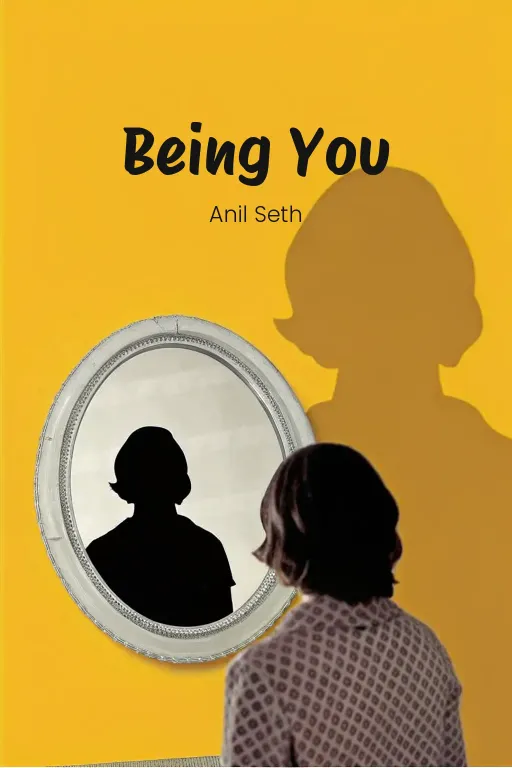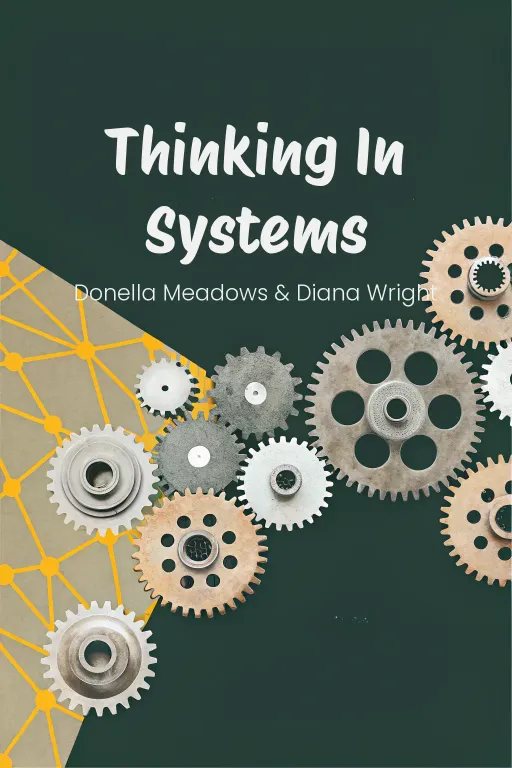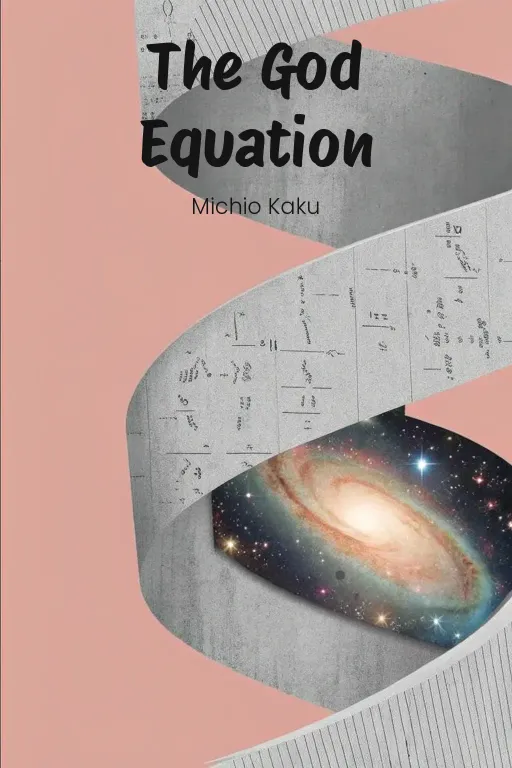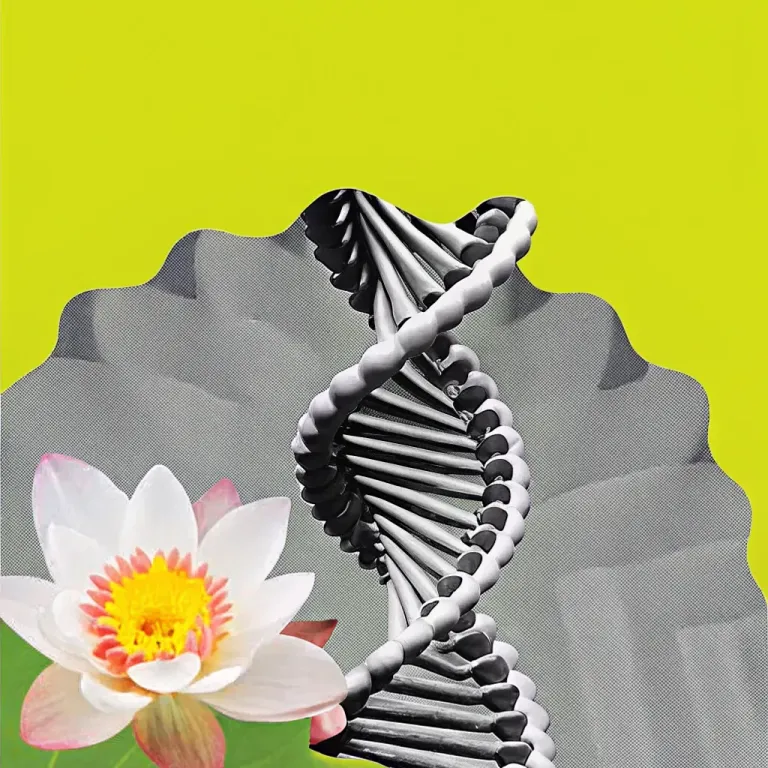
Midlife Reset: Find Joy Now!
Podcast by Wired In with Josh and Drew
Insights at the Intersection of Biology and Buddhism
Midlife Reset: Find Joy Now!
Part 1
Josh: Welcome everyone to today's podcast. We're tackling something many of us face, or will face: the midlife crisis. Whether you’re going through it right now, anticipating it, or watching a loved one struggle, this conversation is for you. Drew: Or, if you're like me, you’re just turning 40 and thinking, "Is this “really” all there is?" You know? Is turning 40 just an audition for a tragicomedy called What Have I Done With My Life?" Josh: Exactly! Because a midlife crisis is way more than just buying a flashy car or booking a spontaneous trip to Bali. There's a lot going on beneath the surface. What we want to do today is really zoom in on those emotional and philosophical underpinnings of this life phase. Drew: Alright, Josh, so hit me with it. Why am I suddenly romanticizing a past that wasn't even that great to begin with? Josh: That's such a common feeling! And actually, today's discussion draws from some really insightful explorations of midlife. We'll be diving into the themes like mortality, regret, and, that general feeling of searching for deeper meaning. We're not just going to look at the crisis, but also explore some really useful tools that can help shift your focus, that can help you stop dwelling on past decisions and start really valuing the present moment. You can think of it like adjusting the focus on your life. Drew: Okay, so… less obsessing over Instagram, more appreciating sunsets? Josh: Not quite “that” simple, Drew. But philosophy’s gonna be key here. And we’re going to be touching on some ideas, concepts like telic versus atelic activities. In other words, goals versus process. That can really help illustrate why we sometimes feel stuck. It’s about understanding that life isn't just some kind of checklist of achievements, but actually a chance to find fulfillment through the way we live. Drew: Alright, but how do we sort through all of that without, you know, spiraling into some kind of existential black hole? Josh: That’s what we’re here to figure out. We’re going to explore the midlife crisis by looking at three key aspects. Firstly, we’re going to analyze how this midlife discontent actually arises: the cultural factors that contribute to it, but also its personal impact. Drew: Okay, so we'll finally understand why every sitcom dad suddenly becomes obsessed with motorcycles. Josh: Or decides to quit their job and open a bakery! Secondly, we’ll be looking at some philosophical strategies that can help us reframe our regrets, and help us learn to live more fully in the present. Drew: Ah yes, regret. The unwelcome roommate of my 40s. Josh: Exactly. And finally, we’re going to look at how to turn this life stage into an opportunity for growth and meaning. It’s not just about fixing perceived mistakes, but about truly reimagining the road ahead. Drew: So, basically, it's a guide for turning an existential crisis into a self-improvement project? I'm in. Let's get started.
Understanding the Midlife Crisis
Part 2
Josh: So, let's dive right in, shall we? What “is” a midlife crisis, really? How did it become such a big deal in psychology and pop culture? It all started with Elliott Jaques. He was a psychoanalyst who coined the term way back in 1965 with his essay, Death and the Midlife Crisis. Drew: Let me guess, Josh—he wasn't exactly on a beach vacation when he had this brilliant idea, was he? Josh: Not exactly. Jaques noticed people often go through a big cognitive shift in middle age. His big idea was that it's not just about getting older. It's about, you know, facing your own mortality. He saw life as this "endless upward climb" that suddenly peaks. Suddenly, you're looking down at a finite future. In other words, the realization that life might be halfway over brings up big questions about how you've lived and what's coming next. Drew: So, it's basically that moment where you think, "Oh crap, time's running out, and I haven't run a marathon or learned to play guitar"? That kind of thing? Josh: Exactly. And that realization can lead to some deep reflection, sometimes even dread. It's not just about the things you “didn't” do, though. It's also about looking at what you thought was important and asking yourself if those things still hold true. Drew: But why “does” this crisis happen, then? We all know we're aging, right? So why does this particular stage hit so hard? Josh: Well, a lot of it has to do with expectations, both personal and societal. Middle age is often seen as this make-or-break point. Society sort of tells you you've either "made it" or you haven't. There's a lot of pressure to look at your career, relationships, and personal growth and see where you fall short or how much time you have to course-correct. Drew: Ah, so society is kind enough to tell us when we should feel bad about ourselves. How lovely. Josh: Precisely! Jaques gave the midlife crisis a psychological basis, but what's interesting is how much it's woven into our cultural stories. Take Lester Burnham in American Beauty, for example. Drew: Oh, Lester. He's like, the poster child for the midlife crisis, isn't he? Josh: Totally. He's bored, stuck in a rut, and looking for meaning in all the wrong places – a fancy car, quitting his job, chasing youth. It's almost funny on the surface, but if you dig deeper, his story reflects some real truths about how people think external changes will fix internal problems. Drew: Right. He's putting a band-aid on a much deeper problem. By the end of the movie, he realizes that those things don't give him what he's really looking for: meaning. Josh: Exactly! It's similar to how people might dream of changing their whole lives but then realize that the problem isn't external—it's internal. Drew: Which brings us to another archetype: Stoner from John Williams’s novel Stoner. He doesn't blow up his life, does he? He just... accepts things. Josh: Exactly, and that's what makes his story so poignant. William Stoner lives a quiet, unremarkable life. No dramatic meltdowns, no sports cars, no wild reinventions. His midlife crisis is more internal—he's dealing with lost passions, unfulfilled dreams, and a sense of resignation. It's less chaotic than Lester's story, but just as tragic. Drew: So, Lester overreacts, and Stoner underreacts. They're opposites, but both come from the same crisis of meaning. Josh: Exactly. What links their stories is that very human desire to grapple with mortality by asking what really matters. Drew: But neither of them really figures it out, do they? So is the midlife crisis just a big failure, then? Josh: Not at all. And that's where current research comes in. It challenges those stereotypes. Studies like the MIDUS survey paint a more complex picture. They suggest that middle age isn't necessarily a crisis. It's often a time for recalibration. Drew: Are you talking about that U-shaped happiness curve? The one where happiness dips in your early forties and then goes back up as you get older? Josh: Exactly. The MIDUS study shows that while many people struggle with unhappiness in midlife, it's also a time for growth. The "crisis" idea is a very simplistic explanation for a really varied experience. Drew: So it's less about falling apart and more about figuring things out? Like a deep, emotional spring cleaning? Josh: Perfect metaphor! In fact, many people come out of this stage stronger and with more clarity. Instead of regretting what they haven't done, they learn to appreciate the present. Drew: Okay, but, let's be real. What about all the guilt and regret people feel? How do they deal with that? Josh: That's where reframing comes in. Philosophy offers ways to shift your focus from chasing "end goals"—promotions, awards, etc.—to enjoying present activities. Drew: Like savoring your coffee instead of just gulping it down to get through your to-do list? Josh: Exactly! It's about enjoying the process rather than seeking validation from outcomes. That can help people navigate midlife with more grace and intention. Drew: Alright, I'm still not buying the fancy car, but I guess I could try mindfulness. Anything else we should dig into before I officially disown my past mistakes? Josh: There's plenty more to unpack, like how to turn regret into a roadmap for meaning. But for now, the main thing to remember is this: the midlife crisis isn't a judgment on who you are. It's an invitation to reimagine who you could become. Drew: Well, that's surprisingly hopeful, considering it all starts with, you know, staring death in the face. Enlightening stuff, Josh.
Philosophical Tools for Navigating Midlife
Part 3
Josh: So, after digging into the roots of the midlife crisis, let's talk about how we can use philosophy to actually handle these challenges, okay? We're shifting gears a bit, building on what we discussed about the midlife tension. Now, let's get into some practical strategies for tackling those emotional and, you know, bigger questions. Let's dive into the heart of the matter: Philosophical Tools for Navigating Midlife. Drew: Practical strategies, huh? Are we talking about some kind of self-help manual, or is this, perhaps, “Existentialism for Dummies”? Josh: Think of it more as a philosophical toolkit – a collection of viewpoints designed to help you deal with regret, live more in the moment, and find your own meaning. We'll kick things off with how philosophy helps you rethink regret, which is, you know, a pretty common feeling in midlife. Drew: Ah, regret. “The soundtrack of my thirties!” So, how does philosophy help us be okay with all those "what ifs"? Josh: Okay, so the first key is differentiating between guilt and acknowledgment. Guilt, as Sartre might say, carries a moral weight with it. You know, it's like a voice screaming, "You screwed up!" Acknowledgment, on the other hand, is more nuanced. It says, "Given what I knew and the circumstances at the time, I made the best decision I could." It's super freeing. Drew: More liberating than staring at old photos and wondering why I didn’t ask Brittany to the movies? Josh: Exactly. Sartre's take on responsibility re-frames your choices not as failures but as signs of your own independence. Each choice you made, even the ones that seemed bad in hindsight, is proof that you had agency. It doesn't necessarily erase regret, sure, but it helps you accept it into your life story without being weighed down by guilt. Drew: Still, there are regrets that hit harder, right? Situations you can’t physically change — like in Sophie's Choice, for instance. Josh: Precisely. The story from “Sophie's Choice” captures the kind of regret that's not about mistakes, but about the unavoidable tragedies of making certain choices. Philosophy here isn't about forgiveness. Instead, it offers a way of understanding. It helps us realize that some regrets are tied to situations beyond our control. By acknowledging this, we can make room for sadness and work through it, without adding self-blame on top of it. Drew: So, let's make this practical. Say someone hits midlife and regrets spending the past 20 years climbing the corporate ladder instead of pursuing their, I don't know, artistic goals. How does acknowledgment help them? Josh: Well, they might start by recognizing they made those career decisions based on specific things. Financial pressures, family commitments, their own fears. It's not about calling their choices "right" or "wrong." It's about recognizing that their choices show who they were at that time. From there, they can start thinking about what they want to do, right now, to work those unfulfilled dreams into their life. It could be a hobby, a side project, or a slow change of lifestyle. Drew: So, regret isn’t the enemy. It's more of a, you know, flawed sidekick that is ultimately still human? Josh: Exactly! By reframing our regrets, we can move forward instead of staying trapped forever in self-reproach. And that brings us to our next item: embracing atelic activities. Drew: Whoa, wait a minute! What are you talking about? Can you break that down, please? Josh: Telic activities are things we do to get a certain result. Like, aiming for a promotion or finishing a marathon. Atelic activities, on the other hand, are more focused on the process than the outcome. It's all about doing something because it has its own pleasure or value. Things like reading, gardening, or even just having a nice chat. Drew: So, one is your "mission accomplished" to-do list, and the other is… basically the good stuff we just forget to actually enjoy? Josh: Exactly. Atelic activities enrich your life because they're, like, divorced from achieving something else. Philosophers like Aristotle and, later, Aryeh Kosman argue that they enable us to tap into the very essence of life. It's not about what's coming. It's about now. Drew: Okay, but does midlife kind of push you to focus on telic stuff? Paying bills, saving for retirement, kissing the boss's butt, and the cycle continues. Josh: Of course, those obligations don't magically disappear. But midlife is an open invitation to introduce more atelic threads into your life. For instance, maybe you approach relationships as a developing process instead of just a task to "maintain." Or turn a daily activity, like cooking, into a mindful experience that brings you into the present moment. Drew: Like in Rachel Cusk’s “Outline”? Was his name Paniotis? The guy who realized his marriage failed because it became about task-management. Josh: Yes! Paniotis’s reflection is a perfect example. He focused on a list of completed goals, thereby he lost sight of the relationships and emotions that could've kept it alive. He only found his, ah, happiness, when he focused on spending time with his kids, and those atelic experiences. Drew: Alright, so these atelic moments sound promising. But what about all the self-pitying existential dread that people bring with them into midlife? How do you defuse that? Josh: Great question! And that leads us to existential ideas about being present in the moment. Thinkers like Schopenhauer remind us that constantly striving, the never-ending pursuit of the next achievement, often leaves us feeling unsatisfied. Drew: And when you add Dostoevsky to the mix, I assume things brighten up? Josh: Well, Dostoevsky’s “Underground Man” actually offers a crucial insight. It encourages us to accept that our freedom, our ability to choose, is ultimately more important than whether those choices lead to happiness. Basically, freedom lies in the act of choosing, even when those choices are imperfect. Drew: That’s bold. So, instead of moping about my failed band career, I should pick up a guitar again and just play for fun? Josh: Precisely. See, it’s about taking agency in the here and now. Dostoevsky and present-day mindfulness practices both support a vital concept: the past and the future shouldn't control your focus. Instead, engage with the current moment, whether it's, you know, cooking, writing, or just pausing to breathe. It helps you be present in what truly matters. Drew: Mindfulness, cooking, Dostoevsky. You're basically building a midlife survival kit. Josh: In a way, I am! Using philosophy, we equip ourselves to live intentionally: rethinking our regrets, adopting atelic pursuits, and investing more in the present. It’s, like, less about fixing what's broken and more about finding meaning in the here and now. Drew: Man, I hate to admit it, but this all sounds kind of doable... and sort of comforting. Be honest, Josh -- what if I still want a sports car? Josh: Hey, who said you couldn’t enjoy the occasional telic indulgence? Just don’t confuse it with happiness, you know?
Embracing Personal Growth and Fulfillment
Part 4
Josh: So, with all these tools in our toolbox, let's explore how to use them for personal growth and, you know, finding fulfillment. Let’s dive into how we can reframe midlife—not as some big scary crisis, but as a real opportunity. I mean, this brings together everything we've talked about, offering practical strategies: valuing the process, redefining how we see regret, and building up resilience. It's really about turning all these insights into a plan for your own personal development. Drew: Okay, so we're talking about taking that infamous "midlife slump" and actually making something good out of it. What's first on the agenda? Josh: Well, a big one is shifting your focus from telic to atelic activities. Basically, stop obsessing about the goals and start enjoying the journey, right? Telic activities are all about reaching an endpoint: promotions, awards, that dream vacation. And sure, those wins feel great for a minute, but then you're just chasing the next thing. Whereas atelic activities, those are about being present— finding joy in what you’re doing, without needing a reward at the end. Drew: So, telic pursuits are like... chocolate cake—amazing at first, but then you crash. Atelic activities are more like a slow-cooked stew—takes longer, but way more satisfying in the long run. Josh: That's a great way to put it. In Rachel Cusk’s Outline, there's this character who talks about his failed marriage. He says their relationship became just a list of things they had to do: buy a house, get promotions, climb some social ladder. All telic things. And that completely drained the emotions between them. Then he talks about how the best moments were just messing around with his kids, laughing, you know? Those were atelic moments filled with joy and depth. Drew: Right, I see how that clicks into midlife. You spend years hitting these big milestones: career, marriage, kids. And then you get there, and you're like, “Okay, now what?” Josh: Exactly! That’s why it’s key to shift your focus. Think about easy, everyday things like cooking, gardening, even just talking to people. They can completely change when you do them mindfully. Drew: Okay, but come on, what if you hate gardening? What if you can't cook? How do you make these boring things fulfilling without, like, forcing it? Josh: That's totally valid. Atelic activities don't have to be traditional hobbies. It's about how you do things. Take driving to work. Instead of zoning out or stressing, listen to music, notice things around you, think about what you’re grateful for. Extract the good stuff from what you already do, even commuting! Drew: So, you're turning boring things into meditation? Okay, that's interesting. What about regrets? You can try to enjoy the moment, but midlife is full of "what ifs". So, how do you deal with that never-ending list of missed chances? Josh: Good question. Regret is a heavy load, but it doesn’t have to be the end. Think of it as a learning tool. Sartre, for example, talks about freedom. Every choice, even the bad ones, was still your choice. It's not about being perfect; it's about what you knew and could do at the time. Drew: So, I regret skipping piano lessons... and instead of hating myself, I should be proud I played basketball? Josh: Exactly. And you can use that to move forward. Instead of just dwelling on the piano, why not try it now? Regret can show you what's important to you. That's powerful at midlife when you wanna find yourself again. Drew: But what about huge regrets? Like, picking a career you hate 'cause you feel stuck. How do you fix those choices? Josh: That's tough, but you can still reframe things. Look at the regret as proof you cared. What does it teach you about your values? For someone who hates their career, could that motivate them to start a side project? Maybe even change careers? Regret hurts, but it shows you what you “really” want. Drew: Okay, fair enough. Regrets aren't all bad. But let's talk about the dark side. Midlife is when you feel time running out. How do you deal with that? Josh: That's where resilience comes in. Knowing you're not going to live forever can be scary, but it also makes every moment more important. Philosophers like Schopenhauer say focusing on future desires just makes you unhappy. Instead, focus on living right now. If you add in mindfulness, that can be really powerful. Embrace the present. Drew: So, mindfulness is like the philosophical screwdriver that keeps things from falling apart? Josh: That's one way to put it! Meditation or just breathing exercises can really ground you. They help you see tasks as important on their own. Research shows mindfulness can reduce stress, build resilience, and even make you happier. Drew: Okay, I see the logic. But is this just "meditate and be happy"? Seems a bit simple. Josh: Not at all! Mindfulness is part of it, but it's about using all these strategies together. Whether you’re reframing regret, enjoying activities, or being mindful, the goal isn’t to be perfect—it’s to improve. Midlife is less about what you did wrong and more about how you move forward. Drew: Okay, Josh. So, to sum up: atelic joy, reframed regret, and mindfulness. We could call this the midlife growth trifecta. And honestly, it sounds a little less awful than I thought.
Conclusion
Part 5
Josh: So, today we really dug into the midlife crisis, didn't we? We looked at the psychology behind it, how it's portrayed in our culture, and the impact of things like mortality and regret. And we explored how philosophy can give us some tools to actually reframe those regrets, to embrace activities that don't necessarily have a specific goal, and cultivate a little more mindfulness. The aim is to shift this stage of life from feeling like a crisis into an opportunity for real growth. Drew: Right, so basically, the midlife crisis isn’t something to be feared—it's more like a… signal. Okay, maybe it's a loud and somewhat annoying signal, but still, it's pointing you towards rethinking your priorities and figuring out what “really” matters. The key takeaway is to savor the journey, let go of past regrets, and try to find joy in those smaller, everyday moments that we often overlook, right? Josh: Absolutely, Drew. I think the midlife journey is really a chance to shift our focus from what we think we've missed out on to what we can actively create moving forward. It's not about dwelling on or trying to fix the past, but about reclaiming the “present” moment. That’s where the power lies. Drew: Okay, so for anyone out there in their mid-40s who might be questioning the meaning of, well, everything: take a deep breath, step away from the impulse sports car purchase, and remember—it’s the living, not the endless to-do list, that ultimately makes life worthwhile. And here is a question, have you successfully applied these lessons to your life? Josh: I couldn't agree more. And until our next episode, remember—meaning isn’t something you find; it's something you create. See you all next time on Midlife & Meaning. Drew: And maybe, just maybe, leave the existential dread at home once in a while. Take care, everyone.

